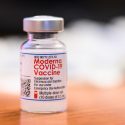COVID questions: Keeping unvaccinated children safe; when quarantine is needed
Editor’s note: We will be publishing answers to questions about COVID-19 and the pandemic each week in this COVID questions column. If you have a question, please email it to covid19update@uc.wisc.edu.
Q: My husband and I are vaccinated, but our young children are currently not eligible to receive the vaccine. Which activities are safe to resume? Are there any we should continue to avoid?
A: It really comes down to the risks versus the benefits of each situation. According to the Centers for Disease Control and Prevention, fully vaccinated people can visit with unvaccinated people, including children, from a single household who are at low risk for severe COVID-19 disease indoors without wearing masks or physical distancing.
This guidance is helpful, as are state and county health department guidelines, but in each situation you might ask: ‘Are we safe and will we put others at risk?’ If not, follow existing state and federal advice, wears masks, keeps physically distanced and focuses on activities outdoors where the risk of infection is much lower.
In addition to UW Health, the CDC, Wisconsin Department of Health Services and Public Health Madison & Dane County all offer guidance on ways to stay safe and protect others as more people become vaccinated against COVID-19, as well as what fully vaccinated people should do in public.
- Joe McBride, infectious disease expert at UW Health, from UW Health news.
Q: What are the factors that determine whether a disease requires quarantining after exposure? Influenza, for example, is an infectious disease that does not require quarantining. What would it take to get to the point where individuals no longer need to quarantine after being exposed to a SARS-CoV-2 infected person?
A: A disease which is highly infectious that people spread unknowingly and is a threat to individual and societal health, warrants quarantine, but only if the routes of transmission and the natural history afford the opportunity.
People with flu-like symptoms are not routinely tested for influenza, so it is less than ideal to ask people to quarantine following exposure to someone with non-specific symptoms. In contrast, COVID-19 testing is widely available, and results can be available within 24 hours. Contact tracing can identify exposed individuals to begin quarantine.
Even if routine testing for influenza were performed, the environment plays a significant role in transmission since the virus can survive up to days on some surfaces. Thus, quarantine of exposed individuals has less of an impact on community influenza rates given the role of contaminated surfaces. In contrast, surface spread of SARS-CoV-2 is not believed to be a significant contributor of community transmission.
The incubation period of seasonal influenza is only 1-4 days with a median of about two. While infected people may spread the virus up to 24 hours before symptoms appear, peak infectiousness is actually one day after symptom onset. Thus, it is better for a person with flu-like symptoms to self-isolate than to leave home and seek a diagnosis. Also, there is little time to test for influenza, obtain results, contact trace, and quarantine exposed individuals. For SARS-CoV-2, the median incubation period is 4-5 days, and can be as long as 14 days. Notably, people with SARS-CoV-2 are most contagious 24 to 48 hours before symptoms appear. In fact, more than half of new cases are caused by exposure to someone with asymptomatic or pre-symptomatic COVID-19. Thus, quarantine of people with known exposure is sensible and imperative in slowing the spread of SARS-CoV-2 in a community.
You asked, “What would it take to get to the point where individuals no longer need to quarantine after being exposed to a SARS-CoV-2 infected person?” Vaccination. CDC guidelines specify that people need not quarantine following exposure to someone with SARS-CoV-2 infection two weeks after completing COVID-19 vaccination. That is because the COVID-19 vaccines greatly reduce the risk of becoming infected with SARS-CoV-2, and even if breakthrough infection occurs, vaccinated individuals are not considered very infectious.
- Ajay Sethi, associate professor of population health sciences
See more answers to COVID questions at https://news.wisc.edu/tag/covid-questions/. Also, visit our COVID-19 impact site.



